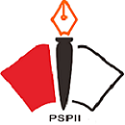Collaborative Learning and Mini Research Assignments on The History of Islamic Educational Thought: The Impact of Students' Critical Thinking Ability
Abstract
Keywords
Full Text:
PDFReferences
Agus Zainul Fitri dan Nik Haryati. (2020). Metodologi Penelitian Pendidikan. Madani Media.
Amrullah. (2022). Integration of Islamic Moderation Values on Islamic Education Learning Material at Madrasah Aliyah Level. AJIS: Academic Journal of Islamic Studies, 7(1), 27–44. https://doi.org/10.29240/ajis.v7i1.4284
Brink, H. (2009). Fundamental of Research Methodology for Health Care Professionals. Juta Press.
Facione, P. (2010). Critical Thinking: What It Is and Why It Counts. Insight Assesment.
Fitriasari, N. S., Apriansyah, M. R., & Antika, R. N. (2020). Pembelajaran Kolaboratif Berbasis Online. Inspiration: Jurnal Teknologi Informasi Dan Komunikasi, 10(1), 77–86. https://doi.org/10.35585/inspir.v10i1.2564
Kemendikbud. (2013). Model Pembelajaran Berbasis Proyek (Project Based Learning).
Khoiriyah, A. (2016). Pembelajaran Kolaboratif Pada Matematika Untuk Membentuk Karakter Generasi. JMPM: Jurnal Matematika Dan Pendidikan Matematika, 1(1), 13–22. https://doi.org/10.26594/jmpm.v1i1.502
Komara, E. (2018). Penguatan Pendidikan Karakter dan Pembelajaran Abad 21. SIPATAHOENAN: South-East Asian Journal for Youth, Sports & Health Education, 4(1), 17–26. https://doi.org/10.2121/sip.v4i1.991
Maryatin, T., Syihabuddin, Sauri, S., & Somad, M. A. (2020). Building Religious Characters of The 21st Century Muslim Generation. Al-Tadzkiyyah: Jurnal Pendidikan Islam, 11(2), 153–174. https://doi.org/10.24042/atjpi.v11i2.7284
Nugraha, A. J., Suyitno, H., & Susilaningsih, E. (2017). Analisis Kemampuan Berpikir Kritis Ditinjau dari Keterampilan Proses Sains dan Motivasi Belajar Melalui Model PBL. Journal of Primary Education, 6(1), 35–43. https://doi.org/10.15294/JPE.V6I1.14511
Nuryanti, L., Zubaidah, S., & Diantoro, M. (2018). Analisis Kemampuan Berpikir Kritis Siswa SMP. Jurnal Pendidikan: Teori, Penelitian Dan Pengembangan, 3(2), 179–186. https://doi.org/10.17977/jptpp.v3i2.10490
Santrock, J. W. (2007). Educational Psycholoy 2nd edition (B. . Tri Wibowo (ed.); terjemahan). Kencana Prenada Media Group.
Siti Zubaidah. (2010). Berfikir Kritis : Kemampuan Berpikir Tingkat Tinggi Yang dapat Dikembangkan Melalui Pembelajaran Sains. Seminar Nasional Sains 2010 Dengan Tema “Optimalisasi Sains Untuk Memberdayakan Manusia,” 16(January 2010), 1–14.
Sugiyono. (2006). Statistik untuk Penelitian. Alfabeta.
Sumadi Suryabrata. (2010). Metodologi Penelitian. PT. Raja Grafindo Persada.
Syafei, I. (2019). Pengembangan Bahan Ajar Pendidikan Agama Islam Berbasis Problem Based Learning untuk Menangkal Radikalisme pada Peserta Didik SMA Negeri di Kota Bandar Lampung. Al-Tadzkiyyah: Jurnal Pendidikan Islam, 10(1), 137–158. https://doi.org/10.24042/atjpi.v10i1.3631
DOI: http://dx.doi.org/10.24042/atjpi.v13i1.10550
Refbacks
- There are currently no refbacks.
Copyright (c) 2022 Al-Tadzkiyyah: Jurnal Pendidikan Islam

This work is licensed under a Creative Commons Attribution 4.0 International License.

Al-Tadzkiyyah: Jurnal Pendidikan Islam is licensed under a Creative Commons Attribution 4.0 International License. Copyright © UIN Raden Intan Lampung. All rights reserved.








